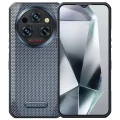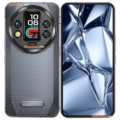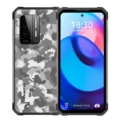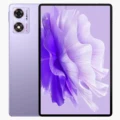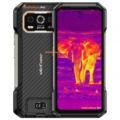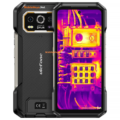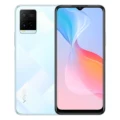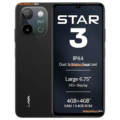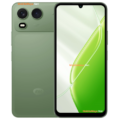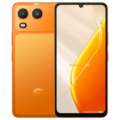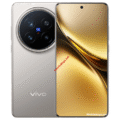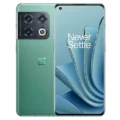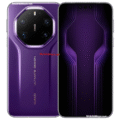Price List: Under Tk.5,000 | Tk.5001-10000 | Tk.10001-15000 | Tk.15001-20000 | Tk.20001-30000 | Tk.30001-40000 | More Mobiles
- Home
- All Mobile
- Oukitel
- Oukitel P1 Pro
Oukitel P1 Pro
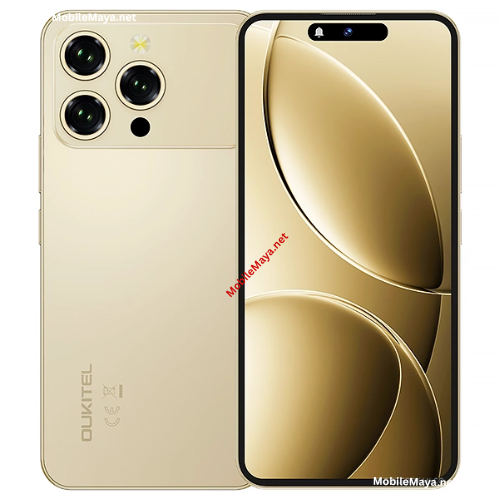

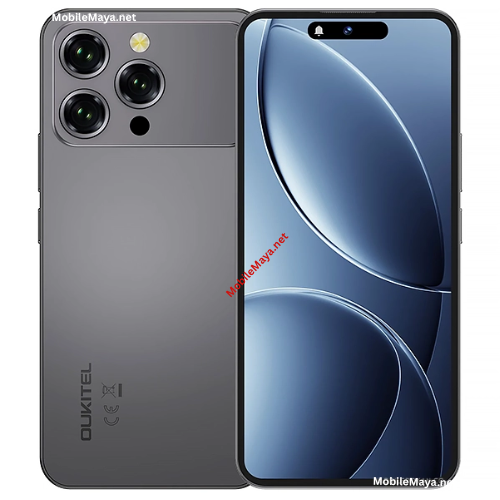
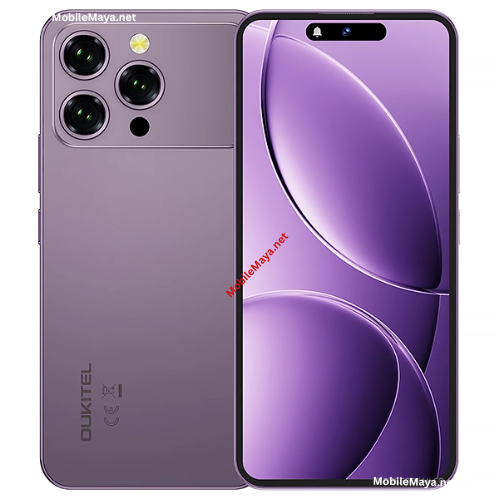
Specifications
Price in Bangladesh
| Expected Price | ৳30,000 |
General
| Device Type | Smartphones |
| Announced | July, 2026 |
| Released | September, 2026 |
| Status | Available |
Hardware & Software
| Operating System OS => Every computer system run on a base software called Operating System (OS). Operating System controls all basic operations of the computer (such as smartphone, PDAs, tablet computers and other handheld devices). The Operating System allows the user to install and run third party applications (apps), apps are used to add new functionality to the device. | Android |
| OS Version | v15 |
| Chipset Chipset is a group of integrated circuits designed to perform one or a more dedicated functions, often with real time computing constraints, Popular smartphones are equipped with more advanced embedded chipsets that can do many different tasks depending on their programming. | Mediatek Helio G100 (6 nm) |
| CPU CPU (Central Processing Unit) mostly known as processors, CPU processes instructions in order to carry out certain functions that make your device operate properly. Processors are often described as the brain of computers, smartphones and tablets, Smartphones and tablets rely on processors to carry out their every task, Processors are an incredibly important factor in selecting any type of computing device, including your smartphone. | Octa-core (2x2.2 GHz Cortex-A76 & 6x2.0 GHz Cortex-A55) |
| GPU GPU (Graphics Processing Unit) is a single-chip processor designed to rapidly manipulate and alter memory to accelerate the creation of images in a frame buffer intended for output to a display, This includes things such as lighting effects, object transformations, and 3D motion. | Mali-G57 MC2 |
| RAM (Memory) RAM (Random Access Memory) is a type of computer memory that can be accessed randomly, any byte of memory can be accessed without touching the preceding bytes that allows information to be stored and accessed quickly from random locations. RAM is the most common type of memory found in computer systems, smartphones, tablets and other electronic devices. | 4 GB, 8 GB |
Design
| Dimensions | 162.4 x 76.2 x 8.2 mm (6.39 x 3.00 x 0.32 in) |
| Weight | 186.8 g (6.60 oz) |
| Colors |
Black, White, Purple |
Display
| Display Type Display Technology => A number of display technologies and types used in mobile phones => TFT (Thin Film Transistor), IPS (In-Place Switching), OLED (Organic Light Emitting Diode), AMOLED (Active-Matrix Organic Light-Emitting Diode), Super AMOLED (an even advanced version of AMOLED), Resistive Touchscreen (Resistive touchscreens contain two layer of conductive material with a very small gap between them which acts as a resistance), Capacitive Touchsceen (Capacitive touchscreen technology consists of a layer of glass coated with a transparent conductor) | IPS LCD |
| Size | 6.7 inches, 108.0 cm2 (~87.3% screen-to-body ratio) |
| Resolution | 1080 x 2412 pixels, 20:9 ratio (~394 ppi density) |
| Brightness | 500 nits |
| Refresh Rate | 120Hz |
| HDR 10 / HDR+ support |
Rear Camera
| Camera Setup | Triple |
| Main Camera | 50 MP, f/1.9 (wide), 1/1.56", PDAF |
| Second Camera | 2 MP, f/2.4, (macro) |
| Third Camera | 0.3 MP, (depth) |
| OIS | |
| Flash Flash Light => There is commonly two types of flash lights are used in camera mobile phones, LED Flash (LED flash offers lower power consumption with drive circuitry that takes up very little room, LEDs can be strobed faster than any other light source), Xenon Flash (xenon flash produces an extremely intense full-spectrum white light for a very short duration) | LED flash |
| Camera Features | HDR, panorama |
| Video | 4K@30fps, 1080p@30fps |
Front Camera
| Camera Setup | Single |
| Secondary |
32 MP, f/2.2, (wide), 1/2.74" |
| Video | 1080p@30fps |
Battery
| Battery Type Battery Type => Cell phones run on various kinds of batteries depending on the manufacturer, phone size or shape and features. There are basically four types of cell phone batteries => Lithium Polymer, Lithium Ion, Nickel Metal Hydride and Nickel Cadmium. | Li-Ion (Lithium Ion) |
| Placement | Non-removable |
| Capacity Battery Capacity is a measure (typically in Amp-hr) of the charge stored by the battery, and is determined by the mass of active material contained in the battery. The battery capacity represents the maximum amount of energy that can be extracted from the battery under certain conditions. | 5150 mAh |
| Quick Charging | 18W wired |
| USB Type-C | USB Type-C 2.0 |
Storage
| Storage Capacity | 256 GB, 512 GB |
| USB OTG |
Network
| 2G Network |
GSM 850 / 900 / 1800 / 1900 |
| 3G Network |
HSDPA 850 / 900 / 1700(AWS) / 1900 / 2100 |
| 4G Network |
1, 2, 3, 4, 5, 7, 8, 12, 13, 17, 18, 19, 20, 25, 26, 28, 38, 39, 40, 41, 66 |
| SIM SIM (Subscriber Identity Module) is a small card that contains mobile network subscriber's account information. This allows the phone using the card to attach to a mobile network. The SIM card is most commonly associated with GSM and UMTS mobile networks. Moving a SIM card from one phone to another allows a subscriber to switch mobile phones without having to contact their mobile network carrier. SIM cards can also be used by a phone to store limited amounts of data, such as phone numbers and text messages. | Standard SIM |
Data
| GPRS GPRS (General Packet Radio Service) is a packet oriented mobile data service on the 2G and 3G cellular communication system's global system for mobile communications (GSM), Generally, GPRS is used for the purpose of wireless data transfer, such as sharing pictures and videos or browsing the Internet via a mobile phone connection. | |
| EDGE EDGE (Enhanced Data GSM Environment) is a wireless network technology generally considered the next step in the 2G network offers data transfer rates up to four times faster than ordinary GSM networks, Generally, EDGE is used for the purpose of wireless data transfer, such as sharing pictures and videos or browsing the Internet via a mobile phone connection. | |
| Speed | HSPA, LTE |
| Web Browser Web Browser => a web browser is a software application used to locate, retrieve and display content on the World Wide Web, including Web pages, images, video and other files, The primary function of a web browser is to render HTML, the code used to design or markup webpages. | HTML5 |
Messaging
| SMS SMS (Short Messaging Service) is a text messaging service component of phone, Web, or mobile communication systems. It uses standardized communications protocols to allow mobile phone devices to exchange short text messages over the networks. | Yes |
| MMS MMS (Multimedia Messaging Service) is a standard way to send messages that include multimedia content (audio clips, video clips and images) to and from mobile phones over wireless networks using the WAP protocol. | |
| Email Email (Electronic Mail) is a system for receiving, sending, and storing electronic messages, Similar to a letter, email is text messages that may contain files, images, or other attachments sent via the internet to a recipient by using applications and software prograps. An email address is required to receive email, and that address is unique to the user. | Yes |
| IM IM (Instant Messaging) is an exchange of text messages through a software application, it enable you to create a kind of private chat room with another individual in order to communicate in real time over the Internet. | Yes |
Connectivity
| Bluetooth Bluetooth is a wireless communications technology for exchanging data between mobile phones, headsets, computers and other network devices over short distances without wires, Bluetooth technology was primarily designed to support simple wireless networking of personal consumer devices. | 5.0, A2DP, LE |
| Wi-fi Wi-Fi is a popular wireless networking technology using radio waves to provide high-speed network connections that allows devices to communicate without cords or cables, Wi-Fi is increasingly becoming the preferred mode of internet connectivity all over the world. | Wi-Fi 802.11 a/b/g/n/ac, dual-band |
| Wi-fi Hotspot | |
| Infrared Infrared connectivity is an old wireless technology used to connect two electronic devices. It uses a beam of infrared light to transmit information and so requires direct line of sight and operates only at close range. | |
| USB | USB Type-C 2.0, OTG |
| GPS GPS The Global Positioning System is a satellite-based radio navigation system, GPS permits users to determine their position, velocity and the time 24 hours a day, in all weather, anywhere in the world, In order to locate your position, your device or GPS receiver must have a clear view of the sky. | GPS, GALILEO, GLONASS, BDS |
| NFC NFC (Near field communication) is a set of standards for smartphones and similar devices to establish peer-to-peer radio communications with each other by touching them together or bringing them into proximity, usually no more than a few inches. |
Media
| FM Radio | Yes |
| Loudspeaker | Yes |
| 3.5mm Jack | No |
Sensors & Security
| Fingerprint Sensor |
More
| Made By | China |
Performance Tests
PROS
- Smooth 120Hz display with vibrant visuals
- Large storage capacity (up to 512GB)
- 50MP main camera with 4K recording
- Long-lasting 5150mAh battery
- Android 15 for enhanced performance
- Premium design and color choices
CONS
- No 5G connectivity
- Lacks 3.5mm headphone jack
- IPS display (no AMOLED panel)
- Moderate fast charging (18W only)
Oukitel P1 Pro Price in Bangladesh
The Oukitel P1 Pro is priced at ৳30,000 in Bangladesh. This feature-rich smartphone comes in two storage variants — 4GB/256GB and 8GB/512GB — offering solid performance and large storage options for a mid-range device.
Released in September 2025, the P1 Pro stands out with its 6.7-inch 120Hz IPS LCD display, MediaTek Helio G100 processor, and a 50MP triple rear camera setup. Running on Android 15, it offers smooth multitasking and gaming performance at an affordable price point. With its modern design, strong battery life, and decent photography capabilities, the Oukitel P1 Pro is a compelling choice for users seeking value and versatility in a stylish package.
Price & Variants
| RAM & Storage | Price (BDT) | Status |
|---|---|---|
| 4GB + 256GB | ৳30,000 | Available |
| 8GB + 512GB | ৳30,000 | Available |
Oukitel P1 Pro Specifications
The Oukitel P1 Pro is a mid-range smartphone designed for users who need balanced performance, modern aesthetics, and a large display experience. Below are its detailed technical specifications.
| Feature | Details |
|---|---|
| Model Name | Oukitel P1 Pro |
| Release Date | September 2025 |
| Market Availability | Available |
| Official Price | ৳30,000 |
| RAM & Storage | 4GB/256GB, 8GB/512GB |
Display and Design
The Oukitel P1 Pro features a 6.7-inch IPS LCD display with a Full HD+ resolution of 1080 x 2412 pixels and a 120Hz refresh rate, ensuring a smooth scrolling and gaming experience. With a 20:9 aspect ratio and approximately 87.3% screen-to-body ratio, it delivers immersive visuals ideal for video streaming and gaming.
In terms of design, the P1 Pro has a sleek profile with dimensions of 162.4 x 76.2 x 8.2 mm and weighs 186.8 grams. The phone is available in Black, White, and Purple color variants, offering a modern and minimalist look.
Performance and Processor
Powered by the MediaTek Helio G100 (6nm) chipset, the Oukitel P1 Pro offers reliable mid-range performance. Its octa-core CPU (2×2.2GHz Cortex-A76 + 6×2.0GHz Cortex-A55) ensures smooth multitasking, while the Mali-G57 MC2 GPU delivers decent gaming performance for popular titles.
The device is available in 4GB and 8GB RAM options, paired with 256GB or 512GB internal storage — providing ample space for apps, photos, and videos. Users can also enjoy expandable storage via USB OTG. Running on Android 15, the system feels fluid, secure, and optimized for modern apps.
Camera and Video
The Oukitel P1 Pro comes equipped with a triple rear camera setup:
- 50MP main sensor (f/1.9, PDAF) for detailed and sharp shots
- 2MP macro lens for close-up photography
- 0.3MP depth sensor for improved portrait effects
The camera supports HDR, panorama, and LED flash, with 4K@30fps and 1080p@30fps video recording capabilities.
On the front, there’s a 32MP selfie camera (f/2.2) that produces crisp, vibrant selfies and supports 1080p@30fps video recording. Whether you’re video calling or snapping photos for social media, the P1 Pro’s camera system performs well for its price segment.
Battery and Charging
The phone is powered by a 5150mAh non-removable Li-Ion battery, ensuring a full day of moderate to heavy use. It supports 18W fast charging via USB Type-C 2.0, allowing for efficient power-ups when you’re on the go. Combined with Android 15’s improved power optimization, the P1 Pro delivers dependable endurance for daily tasks, streaming, and gaming.
Connectivity and 5G Support
While the Oukitel P1 Pro doesn’t support 5G, it offers strong 4G LTE connectivity across multiple bands. The device features dual SIM capability, supporting GSM, HSDPA, and LTE networks.
Other connectivity options include:
- Wi-Fi 802.11 a/b/g/n/ac (dual-band)
- Bluetooth 5.0 (A2DP, LE)
- GPS with GLONASS, GALILEO, and BDS support
- USB Type-C 2.0 with OTG
- FM Radio
- NFC (optional market-dependent)
Additional Features
The Oukitel P1 Pro includes essential sensors such as a fingerprint sensor, accelerometer, gyroscope, and proximity sensor. It runs Android 15, offering improved privacy features, customization options, and better battery management.
Other highlights include:
- Stereo loudspeakers
- No 3.5mm headphone jack
- Sleek design made in China
- Support for HTML5 browsing and modern messaging formats
Reason to Buy
Here are some of the best reasons to consider the Oukitel P1 Pro:
- Large 6.7-inch FHD+ 120Hz display for smooth visuals
- Powerful MediaTek Helio G100 chipset for solid performance
- Up to 8GB RAM and 512GB storage for extensive data needs
- 50MP triple rear camera with 4K video recording
- Long-lasting 5150mAh battery with 18W fast charging
- Android 15 OS with enhanced security and features
- Stylish design and vibrant color options
Verdict
The Oukitel P1 Pro is an impressive mid-range smartphone that balances style, performance, and affordability. With its 120Hz display, capable Helio G100 processor, and versatile camera system, it’s well-suited for users who want an all-around performer without breaking the bank.
Whether you’re a casual gamer, photography enthusiast, or someone who values a premium design at an affordable price, the Oukitel P1 Pro is a smart buy in the 2025 smartphone market.
FAQ
1. Does the Oukitel P1 Pro support 5G?
No, the Oukitel P1 Pro supports up to 4G LTE connectivity only.
2. Is the battery removable?
No, it comes with a non-removable 5150mAh battery.
3. What is the operating system version?
It runs on Android 15.
4. Does it have expandable storage?
While it doesn’t have a dedicated SD card slot, it supports USB OTG for external storage.
5. Is there a headphone jack?
No, the device does not include a 3.5mm headphone jack.
Alternatives to Oukitel P1 Pro
If you’re considering other options around the same price range, here are some solid alternatives:
- Realme C85 (2025) – Similar price, AMOLED display, and larger battery.
- Xiaomi Redmi Note 14 – Excellent camera and MIUI features.
- Infinix Zero 30 4G – Stylish design and strong performance for gaming.
- Tecno Camon 30 – Great for photography lovers with AI-powered camera tools.
- Samsung Galaxy A16 – Reliable software updates and brand trust.
User Reviews
Disclaimer Note
We do not guarantee that the information of this page is 100% accurate and up to date.


